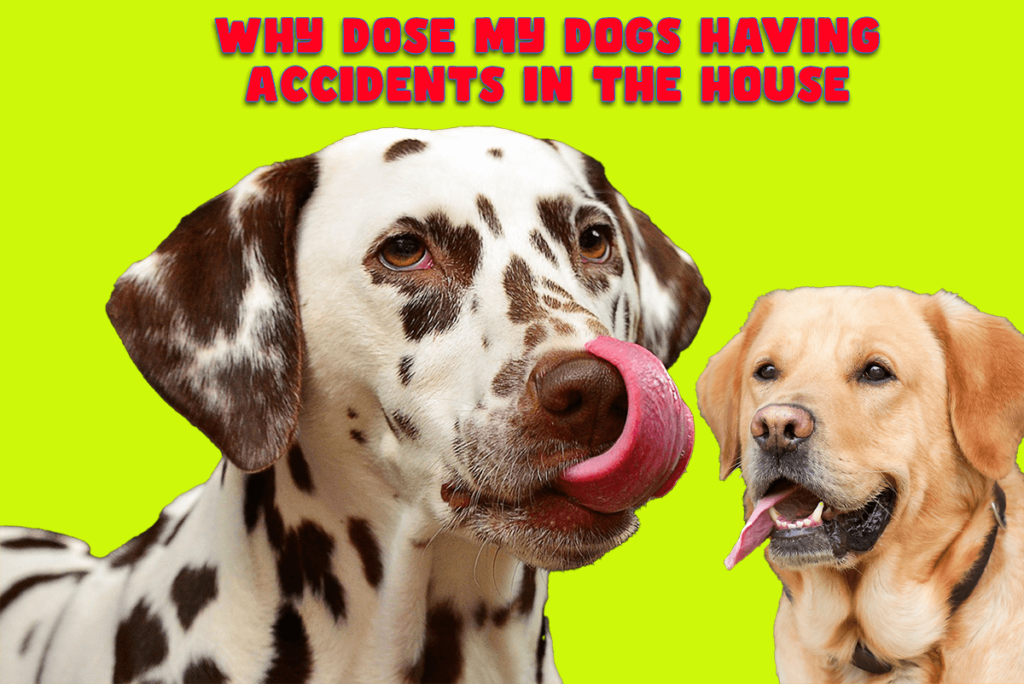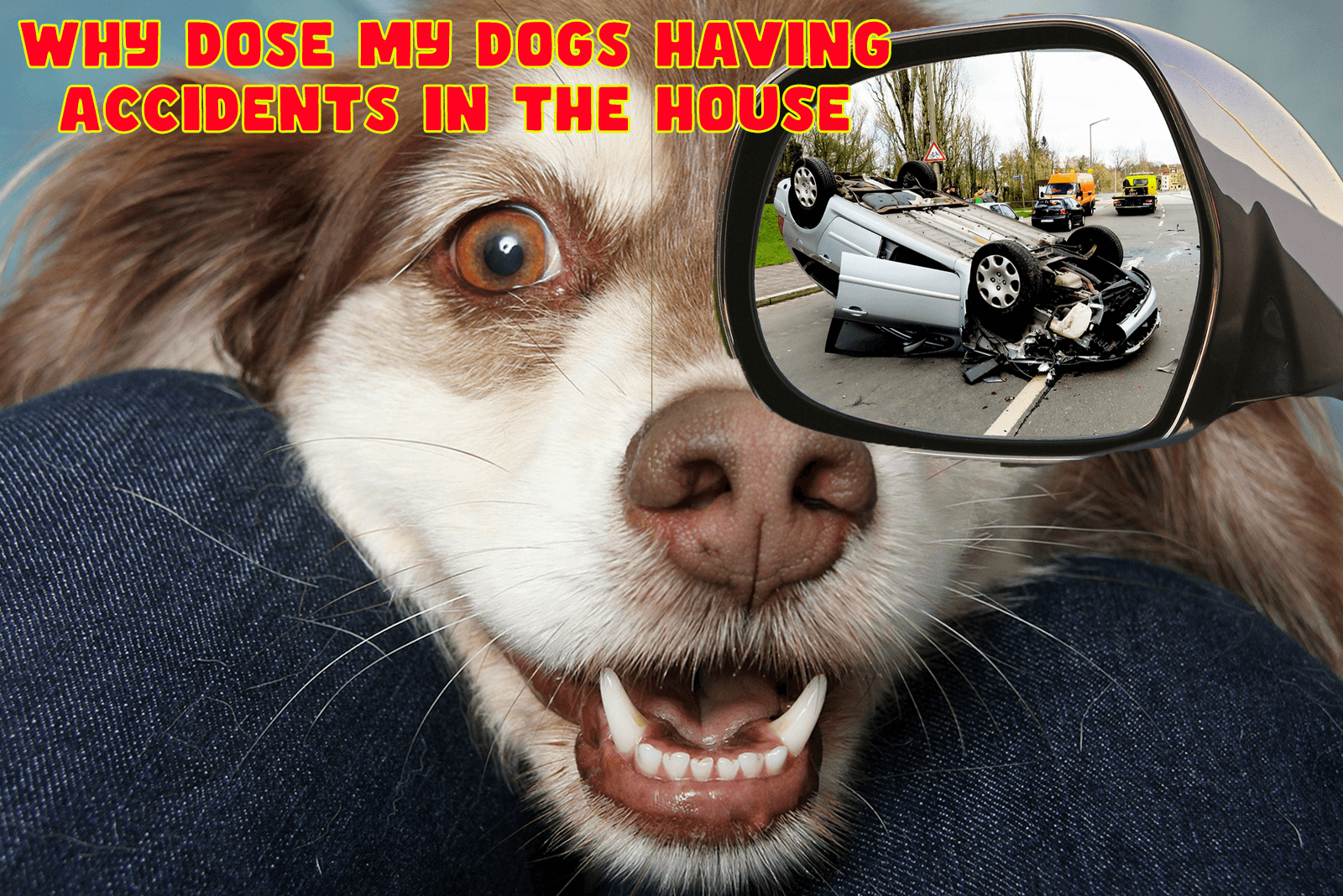Welcoming a dog into your home brings joy, companionship, and many memorable moments. Let’s see more about dogs having accidents in the house
Whether a new puppy is still learning the ropes of house training or an older dog experiences occasional mishaps, accidents in the house can be frustrating and challenging to manage. Understanding the underlying causes and implementing effective strategies to prevent these accidents can make a world of difference for both you and your furry friend.
This article will explore the various reasons dogs may have accidents indoors, from medical issues to behavioral factors. We will also provide practical tips and proven methods to help you address and prevent these incidents, ensuring a cleaner, happier home. Read on to equip yourself with the knowledge and tools to successfully tackle this common issue and strengthen your canine companion’s bond.
Common Causes and Solutions for Dogs Having Accidents Indoors
Accidents at home are among pet owners’ primary concerns. Understanding their causes and finding effective solutions will be instrumental to decreasing or even completely eliminating accidents in your family home, creating an orderly and cleaner home life environment for everyone involved. Below are some common culprits and solutions. See more dogs having accidents in the house.
- Improper House Training: One cause is inadequate house training programs, as insufficient trainees are prepared before moving in. Newly adopted puppies and dogs often experience accidents due to insufficient house training. Puppies’ bladders are still learning where the proper bath place lies, while rescue pups might not understand all home regulations.

Medical Conditions: Urinary tract infections, kidney disease, diabetes, and digestive issues can all increase urination rates uncontrollably and needlessly. Incontinence among older pets may present further difficulty.
Anxiety and Stress: Behavior problems related to anxiety or stress could cause dogs to have accidents inside. Potential triggers could include fear of separation from family, new environments, loud sounds, or significant changes to routine.
Age-Related Factors:
Puppies and older canines alike have an increased risk of accidents. Puppies still learning bladder control face an elevated risk. Senior canines may suffer cognitive impairment or physical limitations, making being outside an early morning challenge.
Environmental Factors:
Outdoor areas, weather conditions, or an absence of an effective outdoor routine could all influence this. Dogs require regular bath times with you or at an animal hospital to stay safe at home.
Effective Solutions: Establish a Routine: Establishing a regular feeding and toileting routine will help regulate your dog’s urine production behavior. Make sure to take them outside regularly during meals, naptime, or playtime to help them understand when to release themselves and go potty. Eventually, they should understand when their time to leave comes up, and they won’t need help leaving!
Positive Reinforcement: Reward your pet whenever he or she cleans up outside. When they go potty, reward them with treats, praise, or affection; the command “Go potty” can also reinforce this behavior.
Crate Training: Crate training can be immensely effective when done effectively. Be sure that the crate is comfortable and suitable in size: big enough that your pet can sit, stand up, or recline comfortably without using one side for toileting. These crates should serve as safe spaces rather than places that threaten them.
Close Supervision: To prevent accidents with your pet indoors, observe their movements closely for signs that indicate they need to leave, such as sniffing, moving around, or whining. Keeping an eye on them allows you to anticipate their needs quickly.
Thorough Cleanup: Onsite accidents should be quickly cleaned with enzyme-based cleaners to eliminate lingering odors that might attract your pet back to that spot, without using products containing ammonia, as they can smell similar to urine for dogs and cause more repeat incidents.
Address Health Issues: Regular trips to your vet’s clinic will allow for early identification and treatment of medical issues that might contribute to dog accidents. If accidents seem frequent for your canine companion, visitations with his or her health provider can be essential in pinpointing any possible issues with his or her health status.
Manage Anxiety:
Recognize and eliminate stressors in your dog’s surroundings. It is helpful to ensure that your dog has access to secure areas. For severe anxiety cases, consider behavioral training techniques like desensitization and counterconditioning or consult a professional dog behaviorist for guidance.
Individual Strategies Based On Age: puppies require regular breaks with plenty of positive reinforcement; older dogs might require additional bathroom breaks due to weak bladder control. Outdoor access and accommodating for any physical limitations could reduce incidents.
Understanding Why Your Dog is Having House Accidents
An accident with you at home may be frustrating and perplexing to pet parents. To arrive at an effective solution, they must identify which factors caused their dog’s behavior. Here is more about dogs having accidents in the house
One of the main factors, particularly with newly adopted
that haven’t yet been house-trained, which is inadequate house training. When housebreaking young puppies, they need frequent breaks as their bladders learn the optimal places for relieving themselves; similarly, rescue animals may still not understand all of your rules within your household environment.
Medical Issues: Serious health conditions such as urinary tract infections (UTIs), diabetes, kidney diseases, and digestive conditions may result in regular urges to relieve themselves. Older dogs may even develop incontinence as their bladder muscles weaken with age, cognitive decline causes cognitive impairments affecting urinary control, and cognitive impairment may worsen urinary system issues.
Anxiety and Stress in Dogs: Stressful environments often contribute to anxiety- and stress-related conditions in canines. Major sources include moving into an unfamiliar home, welcoming a new member into their family/pet’s life, or change of routine; noise disturbances can add additional layers of pressure for dogs that cause more serious distress. Fear of separation often drives dogs from home when left on their own and could potentially result in incidents occurring when being left behind alone.
Environmental Factors: Unreliable access to outdoor areas or severe weather conditions could cause dog accidents. Dogs also need regular access to toilet facilities, so changes to their routine could disrupt this important function of life.
Age-Related Factors: A factor worth considering when planning outdoor excursions for dogs is their age; puppies may struggle with bladder control, while older canines could suffer from physical or cognitive impairments like arthritis, making getting outside at scheduled intervals more challenging.
Preventing Indoor Accidents: Tips for Dog Owners
Preventing indoor accidents involving dogs requires a consistent schedule, education, and an understanding of their needs and behaviors. Here are a few ways you can avoid such mishaps. See more about dogs having accidents in the house
Consistency is Key: Set regular feeding and bathroom breaks to control your dog’s digestion and elimination habits, such as after eating, naptime, playtime, or sleep. Consistent routines will teach your pup when and where it’s okay for him/her to relieve himself/herself.
Frequent Breaks: Puppies and senior pets need frequent outdoor breaks, particularly for puppies whose bladders require additional time for bathing and those whose ability to control bladder function decreases with age and may need frequent bathroom visits for maintenance.
Positive Reinforcement will strengthen positive reinforcement programs
Reward Good Behavior:
Instantaneously give praise and rewards when your dog goes outside to eliminate. Positive reinforcement will teach your pup that going potty outside brings positive outcomes while reinforcing the behavior you want them to display. Utilizing regular cues such as “Go potty!” may also help your canine understand expectations more readily.
Patience and Consistency:
Be patient in your efforts when training at home. Puppy training or newcomers to the home require specific techniques; do not punish your dog, as this could create confusion and anxiety that leads to future incidents.
Crate Training.
Effective Crate Use:
Effectively using a crate can help control your dog’s indoor behavior. Make sure the size is large enough so your dog is comfortable moving around inside, standing up, or lying down comfortably, but not so big that your dog escapes and goes to sleep somewhere else later on. Add comfort by including toys in their playpen! Close Supervision.
Monitor Your Dog: Supervision is key to avoiding accidents and avoiding danger. Be alert for signs that indicate when it may be time for your pup to go outside, such as circles, sniffing, or whining; keeping him/her confined within an enclosed or restricted space will give you time and opportunity to respond quickly when required by their needs.
Containment Areas:
Suppose it becomes impossible for you to monitor your pet closely enough. In that case, baby gates and playpens can help limit his/her mobility in an unsupervised area, thus lessening any chance of accidents. This prevents roaming unattended while decreasing risks. Thorough Cleaning services may also be provided as needed for more complex situations.
Eliminate Odors: Be sure to clean any spills immediately using Enzymatic cleaners, which break down odor-producing molecules, to deter your dog from returning to the same spot repeatedly. Avoid ammonia-based products for cleaning, as their smell could remind your pup of urine, leading to further accidents.
Health and Behavioral Issues in Mind
Regular Vet Visits:
Schedule regular trips with your veterinarian to identify or treat any medical conditions that might lead to injury, such as UTIs or diabetes, which could require frequent removal procedures for irreparable damage.
Reducing Anxiety: Determine and eliminate sources of anxiety that could contribute to accidents for your pet, creating a secure and calm space where they feel safe. Behavior modification techniques, counter-conditioning exercises, and desensitization exercises may all assist with anxiety-induced accidents.
Housebreaking Woes: Dealing with a Dog’s Indoor Accidents
Housebreaking dogs is often an uphill struggle for pet owners of all varieties. Although accidents in the house may happen occasionally, with proper training methods implemented, this risk can be minimized effectively and reduced significantly.
Establish a Consistent Routine
Consistency is of the utmost importance in helping manage digestion. Ensure regular meals throughout the day, and take regular bathroom breaks at set intervals, such as after meals or play, during naps, or before going to sleep. Doing this allows your dog to recognize when it’s time to eliminate.
Positive Reinforcement
Reward and praise your dog when he or she has finished eliminating outside. Rewarding with treats or verbal praise helps reinforce positive behavior that results in favorable results. For example, use consistent signals such as “Go potty!” to teach your pup what’s expected of him or her.
Crate Training
Crate training can be an effective method of housebreaking your pet. Select an adequate crate that allows your pet to move about freely while being secure—without being large enough that they could get out and move to another spot later on! Include furniture and toys in their environment to create a positive and cozy atmosphere and reduce their pet’s contamination of their sleeping spot; most animals prefer not to contaminate where they rest!
Close Supervision: Be sure to monitor your dog during indoor activities to prevent accidents. Look for indications that they need to go outside, such as sniffing, whining, or circling. Keeping their leash indoors or enclosed allows you to watch them more easily. Baby gates and playpens are great ways of restricting outdoor access and stopping unsupervised roaming!
Clean it Up Carefully After an incident occurs, act quickly with enzyme-based cleaners designed to completely eradicate any trace of smell, discourage your pet from returning to that spot again and again, and note that ammonia-based products could trigger memories of urine.
Addressing Medical and Behavioral Issues
If your pet experiences problems, make an appointment with their veterinarian as soon as possible to rule out health concerns like urinary tract infections or digestive problems, as these could trigger accidents. Anxiety-related behavior issues might also contribute to accidents; recognize stressors while employing techniques for behavioral change when necessary.
Why is my dog having accidents in the house all of a sudden
Accidents that involve house-trained dogs in the home can be extremely alarming. While accidents could arise for various reasons, health concerns usually play a central role. Issues like digestive tract infections, urinary tract issues, diabetes, or kidney diseases could contribute to frequent and irreparable losses of pets in this way. An appointment must be scheduled with your veterinarian so they can identify or address any underlying medical conditions as soon as possible.
Behavior changes such as increased stress or anxiety could also play a factor. These could occur through changes to your household, such as welcoming new family members or pets, moving to a different location, or an external stressor, such as hearing loud horns hanging out at you – these could all contribute to unexpected accidents.
Age may also play a factor. Incontinence among older dogs could result from weak bladder muscles or cognitive impairment; as with humans, any changes must undergo a thorough medical assessment before making behavioral modifications for indoor accidents to stop occurring again suddenly and unexpectedly.
FAQs About dogs having accidents in the house
- I’ve noticed my dog has recently experienced numerous accidents at home.
Answer: Unexpected accidents may bring on various issues, ranging from medical conditions such as urinary tract infections or stress to routine changes or changes associated with aging-related conditions. You should speak to your physician to rule out any medical concerns before making decisions based on assumptions alone.
- How can I stop my pet from having accidents inside?
Answer: Set up a routine that includes food and bathroom breaks for your dog and use positive reinforcement whenever they urinate outside. Crate train them, ensure their safe confinement inside, and use an enzyme cleaner product promptly to clean any potential mess left by their urine leakage.
- Could Crate Training Be Effective in Breaking a Household?
Answer: Crate training can be efficient and enjoyable for you and your pup! An appropriately sized crate will encourage them to use their bladder instead of soiling the area they sleep in, encouraging healthy bladder usage while protecting its comforting surroundings from soiling or soil-related accidents. Make sure the crate feels cozy instead of punishment!
- How should I clean up after my dog has an accident inside my house?
Answer: As soon as an incident happens, immediately use Enzymatic cleaning products to eliminate traces of odor and stop your dog from being drawn back into that spot repeatedly. Avoid ammonia-based cleaners, as these may smell similar to urine and confuse your pup!
- Are dogs with anxiety more prone to accidents than other breeds?
Answer: Anxiety may cause accidents around the house. Changes to family structures, loud noises, or separation anxiety could all trigger these episodes – knowing and understanding these triggers could ease their burden and lessen any future incidents.
Conclusion
Dealing with dogs with accidents around the house can be emotionally draining and physically taxing for anyone who owns pets. It’s essential to realize that accidents in the house may be part of learning and adaptation processes for dogs of any age; once identified as the root cause (whether through inadequate training methods, medical conditions like anxiety, or other causes), an appropriate plan of action will be developed to resolve it effectively.
Establishing strategies like regular routines with positive reinforcement techniques, crate training, and providing close supervision is a proven method to help your dog learn to use its bathroom appropriately. Furthermore, dealing with any health concerns should help alleviate further problems down the line, and cleaning up accidents promptly will prevent future issues from arising.
Consistency, patience, and an accommodating mindset are keys to successfully house-training your pet. Utilized methods and tools will assist in surmounting hurdles associated with housebreaking to create an easier home for both parties involved, plus happier pets who feel secure!
Proper education and knowledge create the basis for long-lasting, mutual trust between your pet and you, built on respect if you invest the necessary effort into efficient house training to set a positive framework for long-term, harmonious coexistence.

I’m a Canada, UAE, US, and UK-based writer and dog expert blogger. I spent over five years learning about dog food and grooming techniques. Additionally, I recommend avoiding and properly treating various physical problems in dogs. I am here to share my knowledge about good dog nutrition and care.

